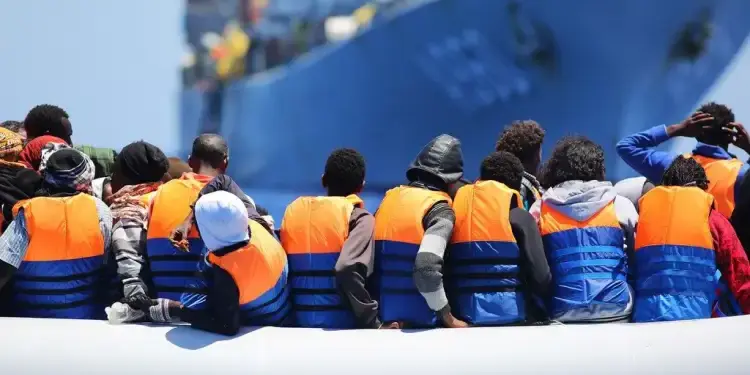From the point of view of the Italian government, the departures of migrants from the Tunisian and Libyan coasts have clearly fell by 60% in recent months, thanks to the strengthening of cooperation with Rome. But the persistent activism of NGOs at sea remains a subject of lively concern for the authorities.
From Tunis to Tripoli, the authorities have indeed multiplied efforts to dry up the illegal immigration flows to Europe, report the Italian media. Supported diplomatic and operational pressure from Italy has led to a series of agreements aimed at better controlling departures.
In Libya, the Italian navy has thus strengthened the capacities of the coast guard by delivering three new patrol stars to them. Result according to Rome, 3,619 migrants have already been intercepted off the Libyan coast this year. New investments as part of the Mattei plan should further strengthen this partnership.
Tunisia is not out of the Italian point of view. Helped by vehicles given by Rome, the gendarmerie intensified its raids against smugglers and traffickers. Above all, the two countries are about to finalize the definition of a Tunisian research and rescue area (SAR) in the Mediterranean.
“This will allow Tunisian ships to intervene to rescue and bring the migrants back to a safe port in Tunisia,” said Italian Prime Minister Giorgia Meloni. A major progress to better manage migratory flows according to Rome.
Already, these combined efforts have made it possible to reduce illegal arrivals in Italy by 60%, from 51,731 to 21,634 landings since January 2023 according to government figures. A result that Rome attributes to “reinforced collaboration relationships” with these key countries of departure.
But the role of the NGOs of the sea remains controversial from the Italian point of view. Their ships landed 18.4% of migrants who arrived in Italy, a share up sharply compared to 2022 according to the authorities. Faced with the Libyan coasts, they even managed to embark a third of the people leaving.
An activity deemed “problematic” by Rome, which sees it as an air call promoting departures. NGOs assure they help people in distress, in accordance with international maritime law.
This old showdown with NGOs around sea rescues could intensify from the point of view of the Italian government if migratory flows went up with the arrival of summer weather. The dissuasive effect of the new transit hotspot in Albania will then have to prove itself in the face of a migratory challenge which remains major in the Mediterranean according to Rome.








